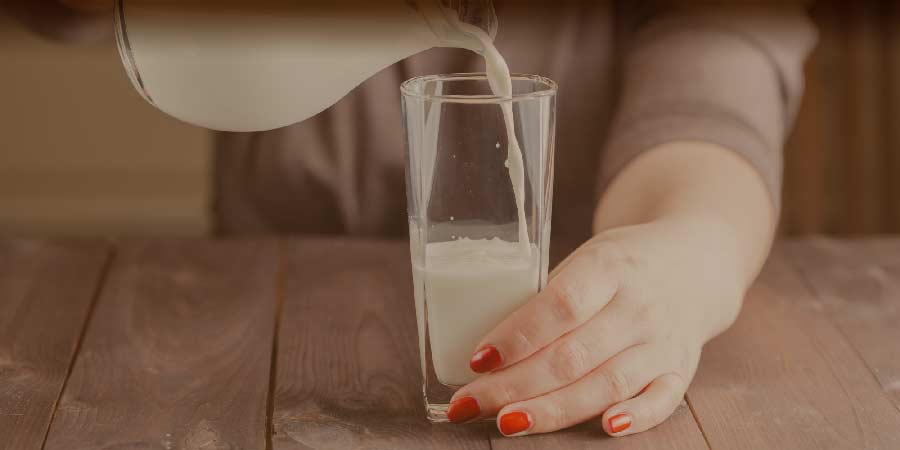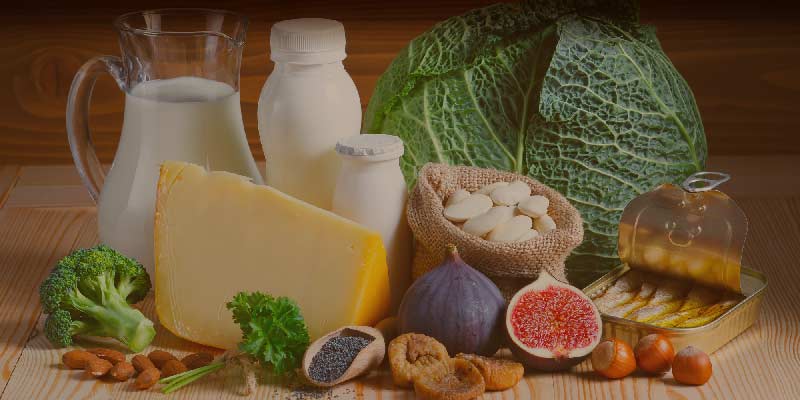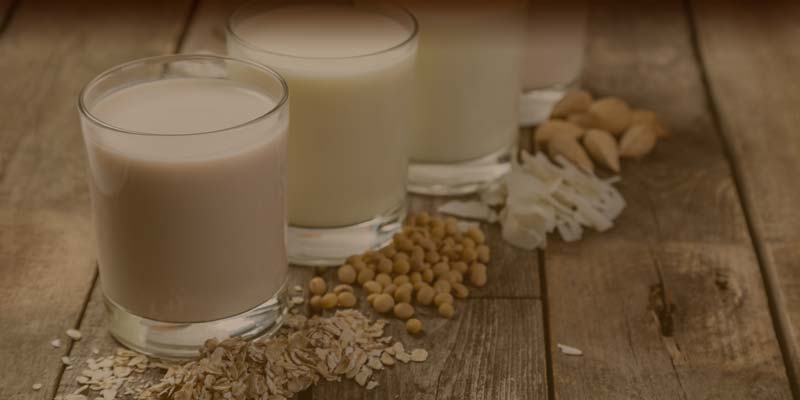Our bones need to last a lifetime so it’s vital we look after them to keep them healthy. Being active, not smoking, staying a healthy weight and enjoying a balanced diet all help to keep bones strong throughout life.
They’re things we all need to do. According to the NHS, more than 3 million people in the UK suffer with osteoporosis – a condition that weakens bones and makes them fragile so they’re more likely to break. Indeed, every year around half a million people have to go to hospital because of fractures that have happened because of osteoporosis. Osteoporosis occurs due to many factors, including genetics, sedentary lifestyle, smoking and certain medications, but poor diet can also have an impact on our bones.
Calcium rich foods like milk, cheese or yogurt play an important part in supporting bone health. milk, cheese and yogurt are important sources of calcium, phosphorus and protein – three nutrients that work together to ensure bones grow and develop normally when we’re children, and stay healthy throughout life. The presence of these nutrients together is a key benefit of milk and dairy products.
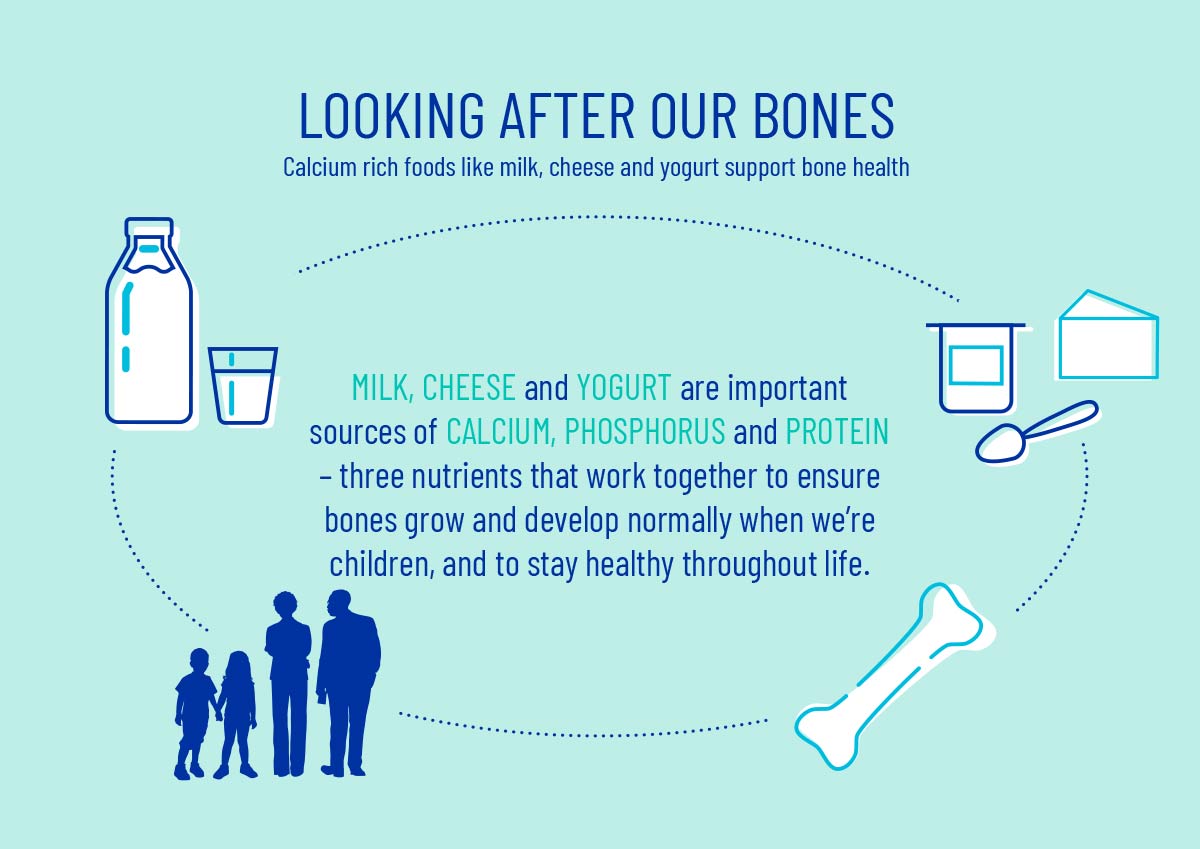
“Calcium gives your bones the strength and hardness they need to cope with your everyday activities.”
Royal Osteoporosis Society
“Milk, cheese, yoghurt and fromage frais are good sources of protein and some vitamins, and they’re also an important source of calcium, which helps keep our bones healthy.”
NHS, 2019
Bone up on calcium
For healthy bones, it’s important to make sure we get enough calcium from our diet throughout life, but especially during childhood and the teenage years. During this stage of life, bones grow really quickly and large amounts of calcium are deposited in them. In fact, by the time girls are 18 years old, and boys 20 years old, around 90 percent of bone strength and density has already been achieved. Our bones keep growing and strengthening until around our late 20s, when they are at their thickest and strongest. This is what doctors call our peak bone mass. Then by our mid-30s, our bones start to lose calcium faster than they store it – and so gradually lose their strength. This is a normal part of getting older and it happens to everyone.
The key is to make sure our bones are as strong as they can be at their peak. That’s why it’s so important to have calcium-rich foods in our diet during our younger years. Put simply, the more calcium that’s deposited in our bones in our first 30 years – and especially during childhood and the teenage years – the stronger our bones will be in later life and the greater the protection against osteoporosis. However, many teenagers fail to get enough calcium in their diets and so may be at greater risk of this condition in later life.
Did you know?
15% of 11 to 18 year olds have seriously low intakes of calcium and are at risk of a deficiency.
Even in our 30s and beyond it’s still vital to get enough calcium to help minimise the losses in bone density and strength that naturally occurs as we get older. In women, this is particularly crucial around the time of the menopause. The female hormone oestrogen helps to keep bones strong so when levels drop and the menopause is triggered, the rate at which women lose bone density speeds up. In fact, women lose bone mineral rapidly in the first few years after the menopause, making osteoporosis more likely in post-menopausal women. Calcium helps to reduce the loss of bone mineral in post-menopausal women.
Find out more about dairy ages and stages.
Find out more about the calcium, phosphorus and protein in different dairy products
GOOD FOR TEETH
Looking after our teeth will give us something to smile about. After all, no one wants to suffer from tooth decay – it’s painful and can mean we have to have fillings or crowns.
Brushing our teeth twice a day with a fluoride-containing toothpaste and regularly visiting the dentist helps to keep teeth clean and healthy. But it’s also important to eat a healthy diet and avoid having sugary foods and drinks too often.
Smile and say cheese (and milk)
Dairy products like milk and cheese are an important part of a balanced diet that helps to keep teeth healthy…
- They contain calcium and phosphorus – two nutrients needed for maintaining normal teeth
- They can be good choices to have instead of foods and drinks that contain a lot of sugar – hard cheese, for example, is sugar free
- Rich milk nutrition means it is a tooth-friendly drink – dental organisations such as the Oral Health Foundation say milk is a good choice of drink for teeth. Plus, unlike soft drinks, it doesn’t have any added sugar and contains protein, vitamins and minerals that help keep us healthy.
- Research studies have found that cheese helps to neutralise the harmful tooth-decaying acids in the mouth that occur after eating sugary foods.
“Milk is a good source of calcium… It also contains protein, vitamins and other minerals, and does not cause tooth decay.”
NHS, 2018
“Plain, still water is the best drink for teeth. Milk is also good because it helps to cancel out the acids in your mouth.”
Oral Health Foundation
Tooth decay… explained
Also known as dental caries or cavities, tooth decay occurs when sugary foods and drinks react with plaque bacteria that live on the surface of our teeth. This creates harmful acids that attack the tooth enamel. If this happens frequently, the enamel can start to break down, creating a small hole or cavity in the layer below. Once this happens, the tooth starts to decay more quickly.
Almost a quarter of five-year-olds in England suffer with tooth decay, with an average of three teeth affected.
A recent dental survey found 27% of over 16’s had tooth decay and nine out of 10 people had at least one filling.
Limit sugary foods and drinks
Dentists say it’s the number of times we eat sugary foods and drinks each day, rather than the total amount of sugar in our diet, that puts our teeth at risk. This is because every time we eat or drink anything containing sugar, our teeth come under attack from the acids that form. Acidic foods and drinks also dissolve the tooth enamel. As a result, dentists recommend we avoid sugary and/or acidic foods and drinks between meals to protect our teeth from constant acid attacks and to give them time to recover. Dairy products make great snacks for teeth.
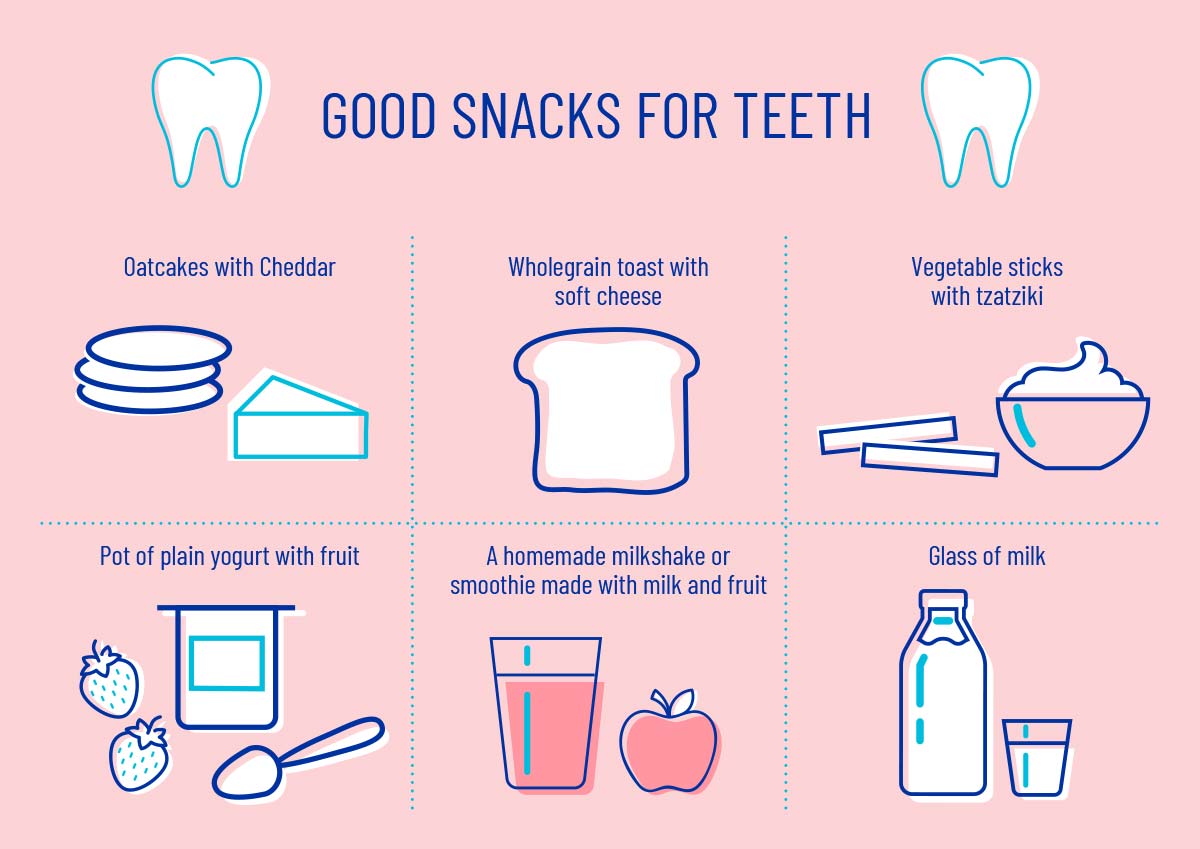
Last reviewed: 03/2021
Next review due: 03/2023


